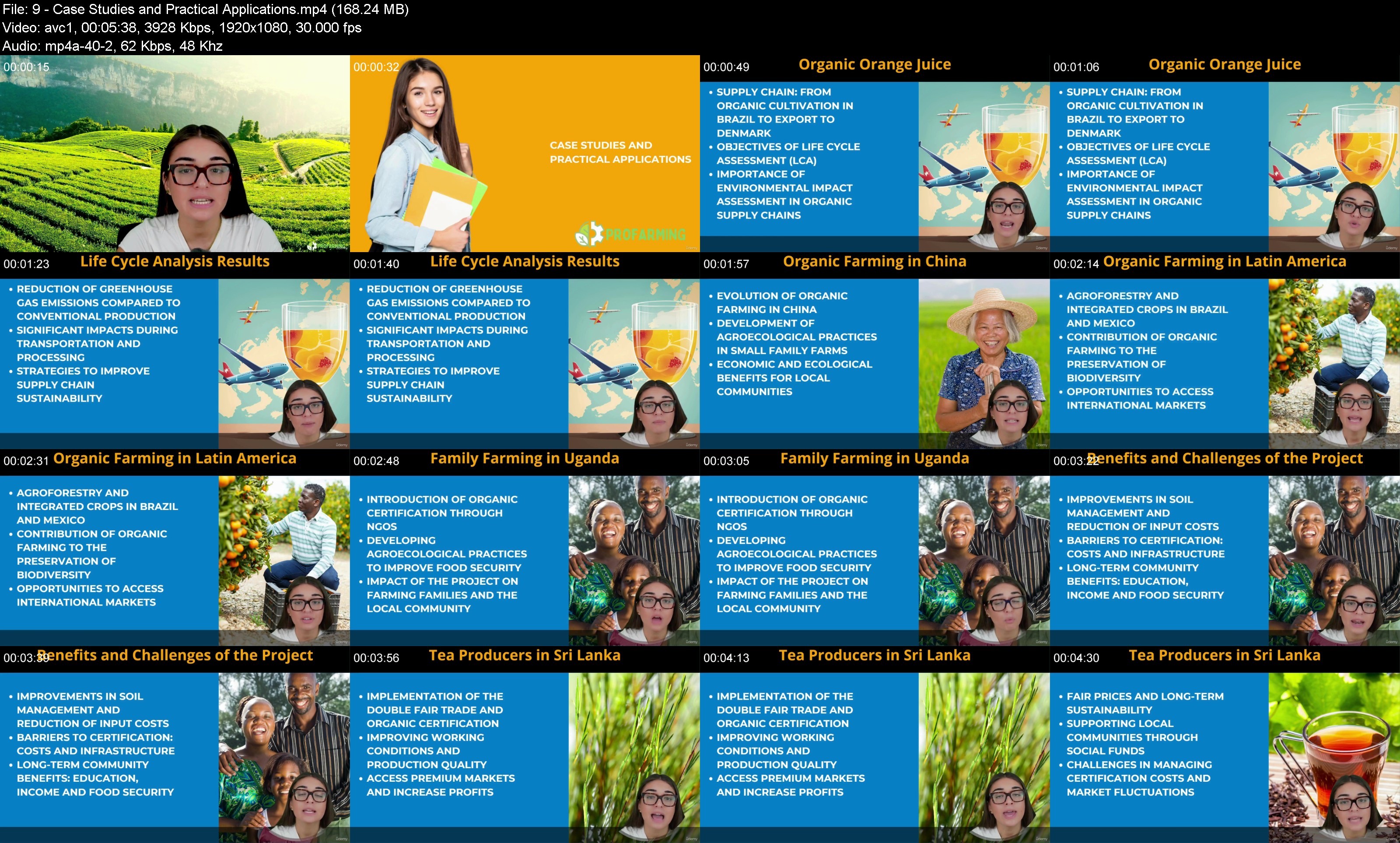Most Commented
Organic Agriculture For Sustainable Development




Description material

Organic Agriculture For Sustainable Development
Published 11/2024
MP4 | Video: h264, 1920x1080 | Audio: AAC, 44.1 KHz
Language: English | Size: 882.56 MB | Duration: 0h 42m
Organic Farming: Cultivating Sustainable Practices for a Healthier Planet
What you'll learn
Understand the principles of organic agriculture: Define and explain the core values of organic farming, focusing on health, ecology, equity, and care for the e
Implement biodiversity and agroecological practices: Learn how to integrate biodiversity and traditional agricultural practices to improve resilience and sustai
Evaluate the global impact of organic agriculture: Assess how organic practices contribute to global food security, sustainable supply chains, and adaptation to
Apply sustainable agricultural techniques: Gain practical skills in crop rotation, integrated cultivation systems, and natural pest control methods to enhance s
Requirements
no experience needed, you will learn everithing from course
Description
This course, "Organic Farming: Cultivating Sustainable Practices for a Healthier Planet," provides a comprehensive introduction to organic agriculture, offering insights into its principles, practices, and far-reaching benefits. Organic farming is a sustainable agricultural approach that emphasizes natural methods to nurture soil health, reduce environmental impact, and produce food without synthetic chemicals. It's a practice that not only benefits ecosystems but also promotes food security and supports the well-being of farmers and communities.Participants in this course will learn the core concepts of organic farming, such as soil management, crop rotation, natural pest control, and biodiversity enhancement. Through case studies from various parts of the world, you'll see firsthand how organic methods improve agricultural resilience and contribute to climate change adaptation. The course also explores the growing global demand for organic products and offers guidance on certification standards and market access, which can open new economic opportunities for farmers.Designed for farmers, agricultural advisors, policy makers, and students alike, this course offers both theoretical knowledge and practical skills essential for anyone interested in sustainable agriculture. By the end of the course, participants will be well-equipped to apply organic farming techniques that protect our environment, contribute to healthier food systems, and build sustainable livelihoods. Join us to discover how organic farming can make a positive impact on our food systems and the planet.
Overview
Section 1: Introduction
Lecture 1 Intro Organic Farming
Lecture 2 Fundamentals of Organic Agriculture and Agroecology
Lecture 3 Global Impacts of Organic Agriculture
Lecture 4 Climate Change and Organic Agriculture
Lecture 5 Techniques and Practices in Organic Agriculture
Lecture 6 Policies and Governance in Organic Agriculture
Lecture 7 Organic Agriculture and Sustainable Development
Lecture 8 Innovation and Research in Organic Agriculture
Lecture 9 Case Studies and Practical Applications
Farmers and Agricultural Producers: Those looking to adopt or expand organic practices to improve environmental and economic outcomes. Small-Scale and Family Farmers: Especially those in rural areas or developing regions seeking methods for sustainable productivity and better market access. Policy Makers and Agricultural Advisors: Professionals working on agriculture-related policies, supporting the implementation of organic standards and sustainable practices. Students and Academics: Individuals studying agricultural sciences or interested in the impact of organic practices on food security and climate resilienceers foundational knowledge, practical skills, and global case studies, supporting diverse participants in understanding and applying sustainable practices effectively.

Join to our telegram Group
Information
Users of Guests are not allowed to comment this publication.
Users of Guests are not allowed to comment this publication.
Choose Site Language
Recommended news
Commented



![eM Client Pro 9.2.1735 Multilingual [Updated]](https://pikky.net/medium/wXgc.png)





![[PORTABLE] Macrorit Partition Expert 6.3.6 Technician Edition (x64)](https://i.postimg.cc/25ythHXH/Macrorit-Partition-Expert.jpg)
![Movavi Video Editor 24.0.2.0 Multilingual [ Updated]](https://pikky.net/medium/qhrc.png)

